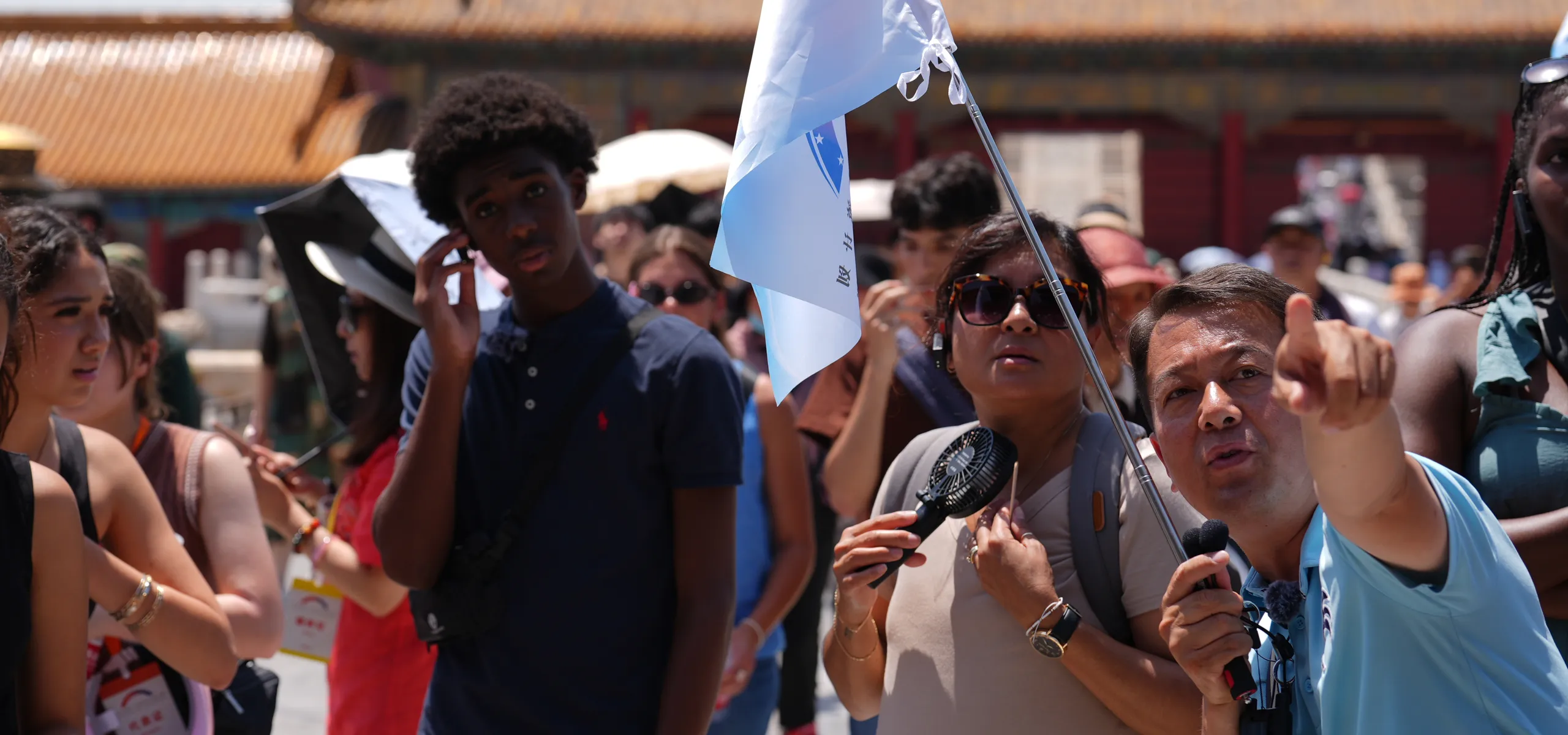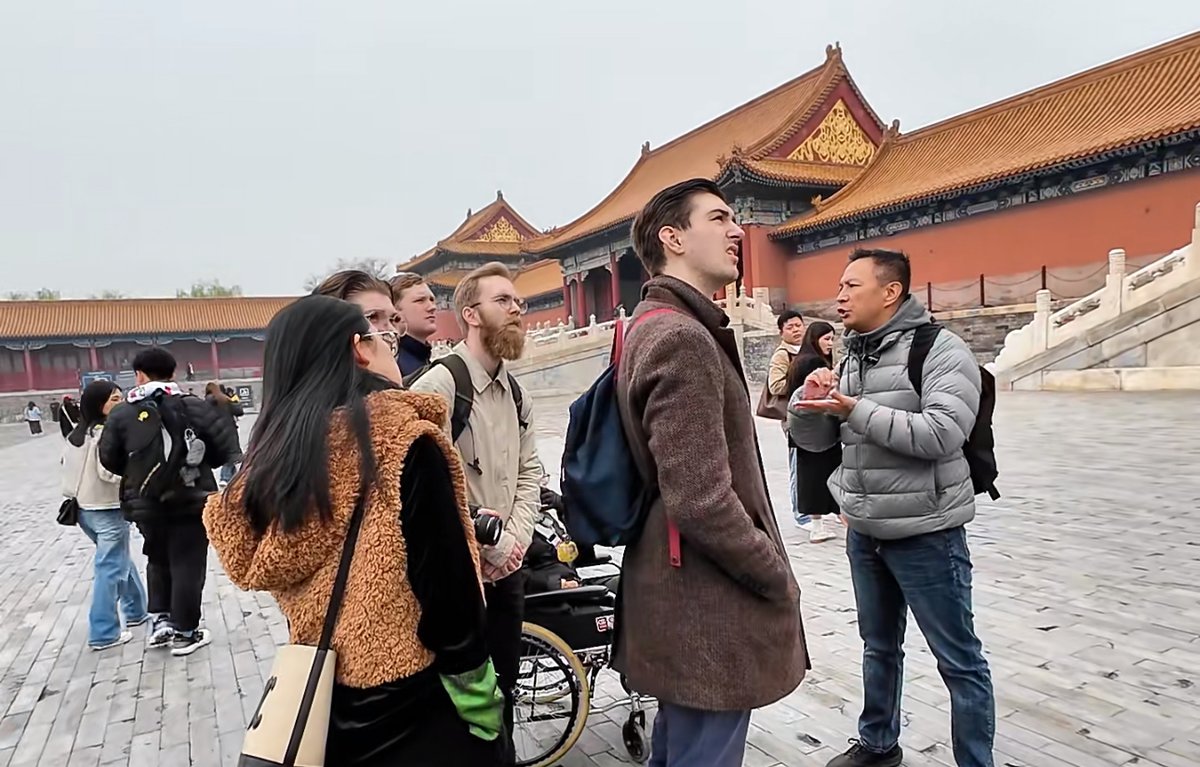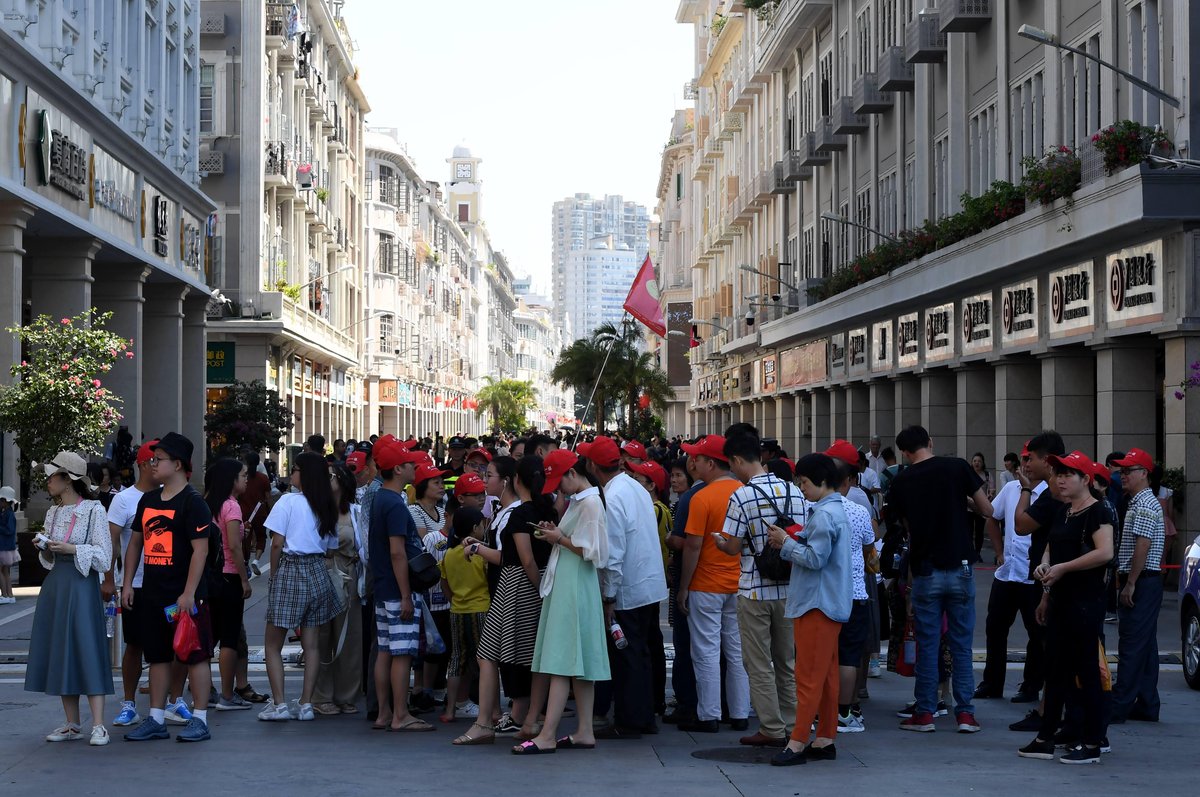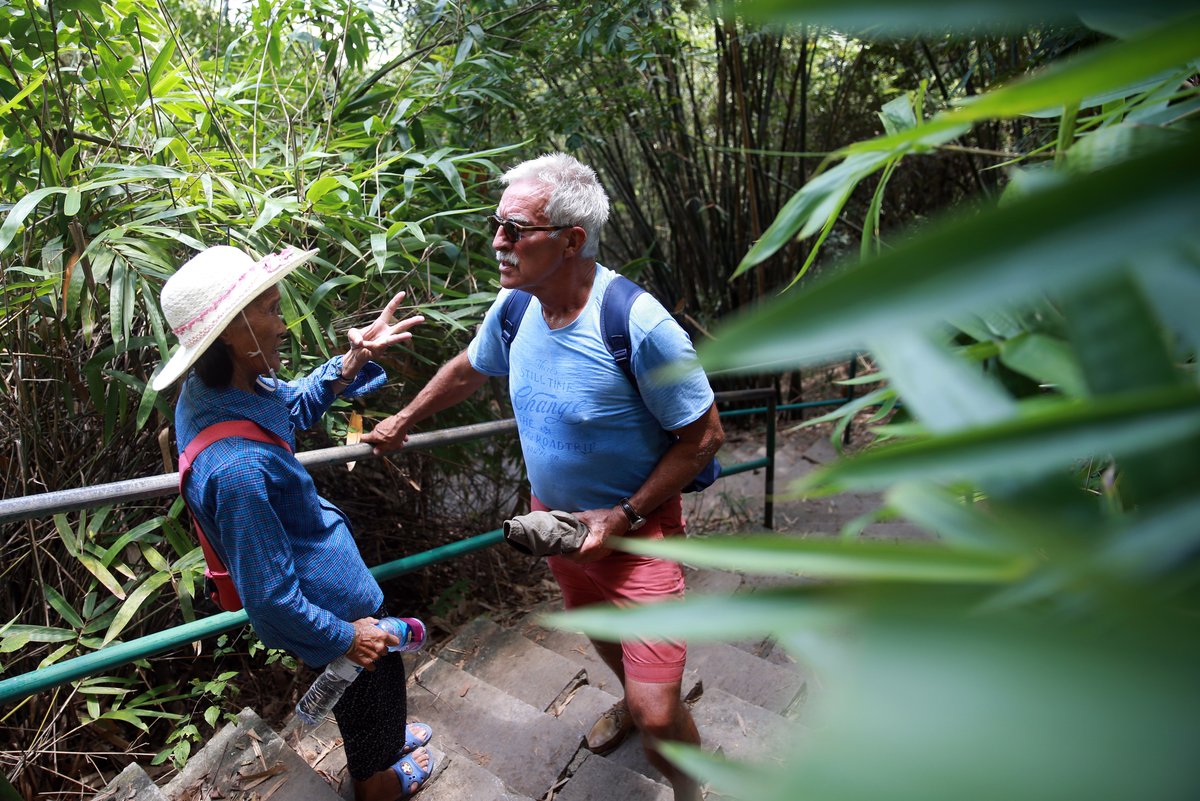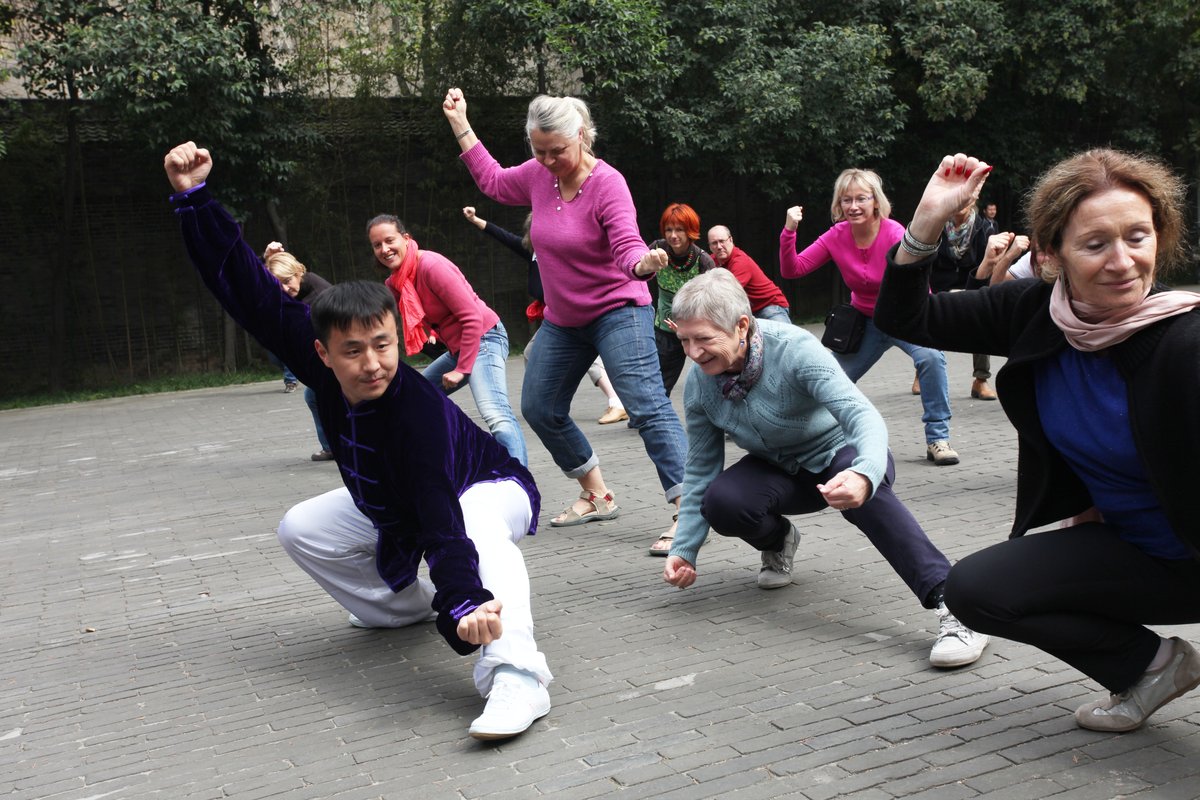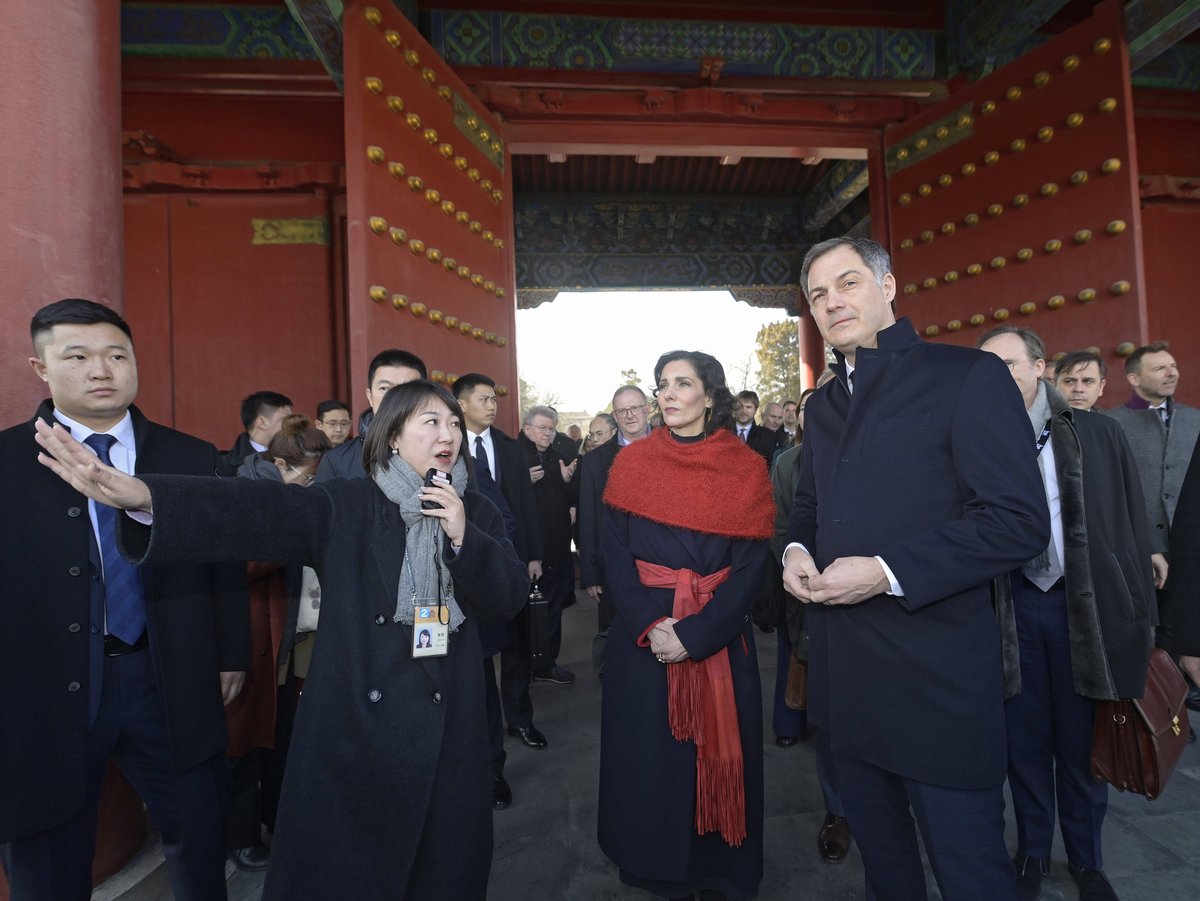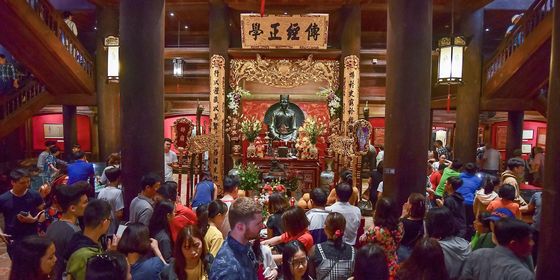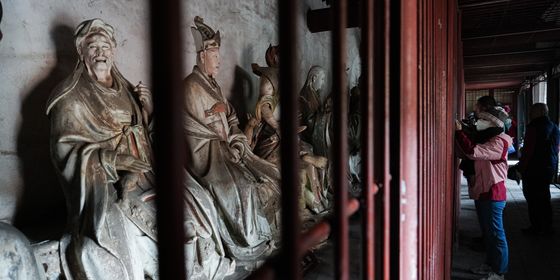As China seeks to attract more international tourists, the need for multilingual guides is on the rise
Before visiting China this May, 19-year-old Lee Seung Hee took private Mandarin lessons for months. As a Chinese-Korean student living in the UK, she had long envisioned a trip that would connect her with her family’s ancestral roots, and jumped at China’s new 144-hour visa-free entry policy.
During her six days traveling through Fujian province’s Xiamen and Quanzhou, Lee encountered friendly locals who were happy to talk with her, and her Mandarin steadily improved. Yet other visitors who didn’t come with the language skills to navigate on their own may find their journeys more arduous: The supply of foreign-language tour guides in China is struggling to keep up with the sudden influx of demand.
After years away during the pandemic, more international tourists are now returning to China, in part thanks to the country’s expansion of visa-free policies. Aiming to promote the tourism industry, the Chinese government has extended its 72-hour and 144-hour visa-free transit option to 54 countries—even more than pre-pandemic levels.
The measures have started to bear fruit: According to the National Immigration Administration, the Chinese mainland registered about 14.6 million visits by foreign travelers in the first half of the year—an increase of about 153 percent from the previous year and almost on par with pre-pandemic levels.
According to TravelDaily, an industry publication, China had more than 40,000 foreign-language tour guides in 2019, catering to 30 million inbound tourists. But by the height of the pandemic in 2021, around 80 percent of guides had left the industry due to lack of demand for their services, and many had no plans to return. (Anecdotally, the parents of former TWOC managing editor Sam Davies, visiting from the UK this past summer, said there was not a single English-speaking guide available during their trip to the Forbidden City in Beijing.)
Watch our mini-documentary about a guide forced by Covid-19 to seek another career
The shortage of guides has been particularly extreme for foreign languages other than English, known in China as “minor languages (小语种).” According to CCTV Finance, daily wages for German language guides have risen to 1,000 to 2,000 yuan due to scarcity, compared to 800 to 1,000 yuan for English guides. In Xiamen, a popular travel destination for many Southeast Asian tourists, daily wages for Thai and Indonesian-speaking guides are also on the rise, according to Xiamen Daily newspaper.
Zhao Xiaoman, a 52-year-old Italian-speaking guide at the Beijing New World International Travel Service, has felt the vacuum. “Now in Beijing, most of the French and Italian tour guides are in our 50s and 60s,” Zhao tells TWOC. “Some 70-year-olds in the French-speaking market are still working on the front lines and leading groups.”
Since the inbound tourism market began to recover last year, some veteran guides like Zhao have returned to the industry, yet they are far from able to meet the soaring demand. During the pandemic, many younger and middle-aged tour guides decided to change careers, while others have chosen to lead outbound tour groups to Europe. The foreign language guides working in China today are increasingly in their 40s and 50s—or older.
For this more senior cohort, serving as a tour guide during an earlier era meant telling the story of China’s culture as the country opened up to the rest of the world. A sense of national pride has sustained Zhao through his decades-long career, yet fresh graduates today share little of the same enthusiasm.
According to a survey conducted by Guilin Tourism University, only about 3.5 percent of graduates entered the tourism industry in the years following the onset of the pandemic.
Read more about English education and travel in China:
- How English Went from Imperialist Treachery to Lingua Franca
- Riding Solo: The Struggles of Roller Coaster Enthusiasts in China’s Sparse Thrill Scene
- Viral Hinterland: The Famous Chinese County That No One Visits
“Nowadays, many young people feel reluctant to endure the hardships and stereotypes associated with the tour guide profession,” says Pan Bingbing, associate dean of Guilin Tourism University. “Even if there are young people who are willing to do it out of love, it takes a lot of time and energy to cultivate a mature language guide.”
At the height of China’s reform and opening up during the 1980s and ’90s, graduates of tourism vocational colleges were assigned jobs to local foreign offices or travel agencies—secure and sought-after “iron-bowl jobs” within public institutions. When Pan graduated from college with an English degree, becoming a tour guide was still seen as a good career choice in a well-paid and respected industry.
Since joining the tourism industry at its peak in 2002, Pan has witnessed the boom and bust of tour guide talent in Guilin, the top tourist destination in southern China’s Guangxi region. She started out as an assistant tour guide for three months before working her way up to more senior positions.
Unstable income is a primary reason the industry has hollowed out. Most guides don’t sign formal labor contracts with travel agencies, which means they can’t access benefits like maternity insurance, work injury insurance, or unemployment insurance. They are also responsible for paying their own health and pension insurance. According to the Ministry of Culture and Tourism, only one-third of the more than 240,000 travel agency employees across China in 2022 have signed formal labor contracts.
As the industry increasingly relies on freelancers and part-timers, many tour guides have to depend on the goodwill of tips and rebates. “The more experienced tour guides naturally look to other more stable career roles such as sales and planning [itineraries], where they can use their frontline experience and tour guide expertise to help craft the product and negotiate with the clients,” Pan tells TWOC.
To address the shortfall, travel agencies are ramping up efforts to collaborate with vocational schools through internships and work-placement offers. Guangxi Chenhui Travel Agency recently began offering subsidies to non-English major graduates who sign up for its bilingual talent program. “The aim is to diversify their language ability and cultivate an all-around tour guide with a solid cultural and historical understanding,” says Lin Yi, a 46-year-old English-speaking guide at the agency. The agency has also been trying to recruit and train students from colleges and universities, but less than one-third of its interns have chosen to sign a contract after graduation.
As international tourism picks up and employment prospects improve, some in the industry believe this trend is poised to reverse. Liu Tang, director and associate professor of the tourism management department of Shanghai Institute of Tourism, told China Tourism News this July that government subsidies and other policy supports—such as streamlining payment for locally employed tour guides—can help travel companies recruit and retain more multilingual talent.
Zhejiang Meida International Travel Agency, for example, has cooperated with Zhejiang Tourism College to recruit non-English language tour guides by establishing mentorship and study abroad programs. “The recovering inbound tourism market will mean new opportunities for the most enterprising tour guides,” Liu said.
The rising demand for non-English language guides may also benefit recent graduates.
While seasonal incomes tend to fluctuate, they can rise by as much as 50 percent per day during peak periods. Liu Ruiling, a Beijing-based English guide (no relation to Liu Tang), notes that since visa-free policies began in March, daily wages for English guides in Beijing have risen from around 600 to 800 yuan, with non-English guides earning even more. Compared to last year, Liu Ruiling’s monthly income has nearly doubled.
While fast-paced “special forces-style” tourism is popular with young Chinese travelers, many foreign tourists prefer a more relaxed experience at a slower tempo, says Liu Ruiling. Domestic tourists often attempt to pack their itineraries full of activities, whereas foreign visitors enjoy taking their time, focusing on just one or two key sites like the Forbidden City and Temple of Heaven. Foreign tourists also tend to show more interest in cultural and historical details, she tells TWOC, making the role of a knowledgeable guide essential.
In this aspect, AI technologies, while helpful, have not yet replaced the human touch.
At the Forbidden City, visitors can use the “Digital Palace Museum” program on WeChat, which introduces the site’s historical architecture, sculptures, and artifacts based on the user’s location. The program also offers smart route recommendations based on the time of the day, real-time traffic, and the best scenery according to season.
In practice, though, bugs and other challenges continue to hamper the seamless integration of new apps with user experience. At the Forbidden City, Davies’ parents purchased an English audio guide at the front gate for 40 yuan, but the app’s descriptions were poorly translated, and its location-tracking features were frequently faulty.
Liu Ruiling points out that while translation apps might aid communication with foreign tourists, they still fall short of delivering a memorable personal experience. Looking ahead, she believes that the future of tourism lies in combining culture and technology. She advises young guides to keep up with the newest tech advancements while deepening historical knowledge—a process that takes many years to master. “AI can do part of the translation job,” she says, “but it cannot replace human interactions in passing on the cultural heritage.”





